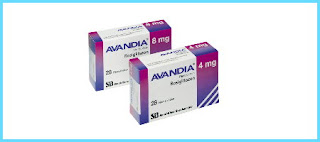Avandia Continues to Face Scrutiny: Biotech's Latest Mishaps

GlaxoSmithKline’s (GSK) diabetes drug Avandia is once again under regulatory scrutiny—this time it’s in Europe where the European Medicines Agency met to discuss whether Avandia should continue to be marketed. The agency in a press statement said that no final decision has been made about the drug.
It said it has further questions for GSK before deciding whether and what action needs to be taken. A final decision is expected by September 23. The meeting took place as a controversy erupted in the United Kingdom over a recommendation made at the end of July by the UK Commission on Human Medicines, according to TheHeart.Org. The commission unanimously voted that Avandia should be withdrawn. Though it informed the Medicines and Healthcare Products Regulatory Agency, the agency responsible for licensing drugs in the United Kingdom, its decision was not made public. Instead the agency sent letters to doctors restating safety information about the drug and suggesting they consider alternatives. Because the drug was approved by the European Medicines Agency, only it can revoke the license for the drug.
Roche said it halted dosing of patients in a late-stage trial of its experimental diabetes drug taspoglutide because side effects including nausea and vomiting resulted in many participants in the study to drop out of it, Bloomberg reported. The company is trying to determine what caused the side effects and see if it can reformulate the medication to reduce the risk, a spokeswoman told Bloomberg. Because a large number of patients dropped out of the study, the company said it would be difficult to determine whether the drug is effective.
Genzyme is laying off an undisclosed number of staff as part of a restructuring first announced in May, Reuters reported. The company said the move was unrelated to Sanofi-Aventis’ efforts to acquire the company. Genzyme has 12,800 employees. It offered no estimates on how much it expects to save through the restructuring.
Shares of Idenix Pharmaceuticals (IDIX) plummeted after the U.S. Food and Drug Administration ordered the company to halt a mid-stage study of two experimental hepatitis C drugs. Three healthy volunteers testing a combination of the drugs IDX184 and IDX320 showed elevated liver enzyme levels in a routine post-study safety test, the Cambridge, Massachusetts company says. Although liver function returned to nearly normal levels in all three subjects, the FDA placed a clinical hold on the study until it can discuss the results and other relevant data with Idenix. Idenix shares fell to $3.18 from $5.99 on the day it was announced. On top of that punishment, the hold will also likely make Idenix's ongoing search for an outside partner to advance its hepatitis C program more difficult. [see story].
U.S.-based Valeant Pharmaceuticals International and Canada’s Biovail plan to eliminate about 25 percent of their combined workforce once a merger is completed between the two companies, Reuters reported. The company’s said they expect to save more than $300 million through cost synergies with more than $200 million being realized in 2011. The companies have a combined workforce of about 4,400.
Marc Tessier-Lavigne, Genentech’s (DNA) executive vice president of research and chief scientific officer, is leaving the biotech to become president of Rockefeller University in New York, Reuters reported. The departure of Tessier-Lavigne, the second highest executive in research at Genentech, is one of the most significant executive changes since Roche acquired Genentech last year. He takes on his new post in early 2011.
U.S. Food and Drug Administration is requiring that certain contrast agents used in magnetic resonance imaging carry new warnings on their labels about the risk of a rare and potentially fatal condition known as nephrogenic systemic fibrosis, if the drug is administered to certain patients with kidney disease.
Nephrogenic systemic fibrosis or NSF is a condition involving the formation of excess fibrous connective tissue in the skin, joints, eyes, and internal organs. Symptoms of NSF can include scaling, hardening and tightening of the skin, red or dark patches on the skin, and stiffness. NSF may lead to death, especially if it involves body organs. The order pertains to gadolinium-based contrast agents or GBCAs.
The agency said three of the GBCAs—Magnevist, Omniscan, and Optimark— will be described as inappropriate for use among patients with acute kidney injury or chronic severe kidney disease. All GBCA labels will emphasize the need to screen patients to detect these types of kidney dysfunction before administration.
GBCAs are intravenous drugs used to help detect abnormalities of body organs, blood vessels, and other tissues through MRI. Magnevist is marketed by Bayer Healthcare, Omniscan by GE Healthcare, and Optimark by Covidien (COV).














Post a Comment